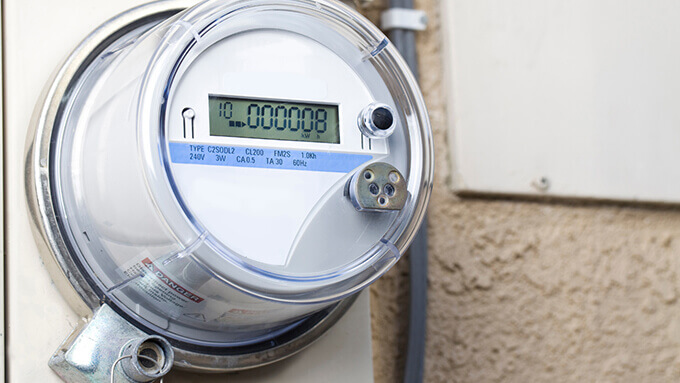Energy Performance Contracts as a Project Financing Method
Introduction
The objectives of the Energy Efficiency Law[1] ("Law"), which was adopted in 2007, are listed as the efficient use of energy, prevention of waste, lowering the burden of energy costs on the economy, and increasing efficiency in order to protect the environment. In this regard, Article 3(1)(k) of the Law, defines energy efficiency as the reduction of energy consumption, without any decrease to the living standard and service quality in buildings, and without a decrease in production quality or quantity in industry.
One of the models applied by the public and private sector to ensure energy efficiency is energy performance contracts. Article 3(1)(j) of the Law defines energy performance contracts as contracts based on guaranteeing energy savings to be achieved after the implementation project, and paying for the expenditures with the savings that will occur as a result of the implementation.
With the project to be implemented within the scope of the contract, it is aimed to reduce energy consumption and related costs. Successful examples of this model are seen in the world, especially in European Union countries.
Energy Performance Contracts in the Public Sector
Regarding the energy performance contracts signed by the administration, the Resolution on the Procedures and Principles Regarding the Energy Performance Contracts in Public Administrations ("Resolution") entered into force.[2] The legal basis of the Resolution is Additional Article 1 of the Law, which states that public administrations may conclude energy performance contracts. With the aforementioned additional article, it is stated that the Public Procurement Law will not be applied regarding the tenders of the public administrations within the scope of energy performance projects (except for penalty and prohibition provisions).
Article 5 (Tender procedure and basic principles) and the following provisions of the Resolution govern the basic principles. Accordingly, certain thresholds have been set for the tenders to be held under the Resolution. Article 5(2) of the Resolution states that the investment amount shall be at least two million Turkish Liras, and the simple payback period must be at least two years. The maximum term for the contract is stated as fifteen years under Article 7(2) of the Resolution.
Energy efficiency contracts concluded by public administrations will be executed within the framework set out by the Law and secondary legislation. In this context, project stages, such as tender (Article 6 of the Resolution - General principles and procedures regarding the tender process) and implementation, monitoring, verification (Article 8 of the Resolution - Implementation period, monitoring period and savings verification activities) should be designed in accordance with the relevant legislation.
Energy Service Companies: ESCO
An energy service company would be the characteristic party of energy performance contracts, regardless of whether the counter party is public administration or private company. These companies that are referred internationally as by the abbreviation of ESCO (Energy Service Company), undertake technical tasks and, depending on the nature of the project, undertake the financing of the company. An ESCO is responsible for conducting the preliminary inspections in the relevant facility or area, determining the energy amount that can be saved and developing a related project and, as a result, the implementation of the relevant project.
Instead of the term “ESCO,” the companies are referred to as "energy efficiency consultancy companies" under the Law and the Resolution. Relevant legislation requires the companies to obtain a certificate of authorization to carry out such service. As per Article 4(1)(t) of the Law, companies that would carry out training, study, consultancy and application activities, may obtain an authorization certificate from the General Directorate of Electrical Works Implementation Administration. On the other hand, to carry out training, authorization and monitoring activities, universities and trade associations may obtain an authorization certificate from the General Directorate of Electrical Works Implementation Administration with the approval of the Energy Efficiency Coordination Board.
Financing Method
An energy performance contract is a notable financing method for energy efficiency projects. Under such model, an ESCO bears the technical risks of the project and the financing burden depending on the project type. Transfer of technical and financing risk to the ESCO makes the project feasible for the administration and the private sector without allocating a significant resource.
One of the advantages of energy performance contracts as a financing method, is the recollection of the investment from the amount of saved energy. Once the repayment is completed, the profit from the savings solely remains on the project owner (administration or private company). Two different models based on the party to undertake financing of the project are the shared savings model and the guaranteed savings model, as presented, below.
Shared Savings Model
In the shared savings model, the ESCO undertakes the financing of the project. In this regard, an initial investment is paid to the project by the ESCO. Once the energy saving occurs following the implementation of efficiency measures, the ESCO takes its share from the saved amount. Thus, the initial investment is recollected from the amount of savings generated as a result of the project; in other words, over the project profit.
This model offers an advantageous structure, especially for local governments, since the project owner does not have to pay in advance, and reimbursement is made on the project profit. In this way, it is possible to allocate annual approved budgets on other projects. Also, the administration would still solely enjoy the amount corresponding to the saved energy, once the repayment is completed.
Guaranteed Savings Method
In the guaranteed savings model, the ESCO bears the technical risk and the performance risk of the project, but the financing burden remains on the project owner. Under this structure, the project owner transfers the investment amount from the beginning of the project and collects the returns of the investment as the saved energy that is due to the project. For example, if the energy saving projection is thirty units in a guaranteed savings contract and, for a specific month, the saving is realized as twenty units, the ESCO would transfer the cost for ten unrealized units to the project owner. In this way, the project owner may still profit from the excess savings, without undertaking the risk for any unrealized amount.
Usually, the guaranteed savings method is preferred for the ESCOs with relatively limited financial capacity. Although an ESCO with a limited financial capacity would not be able to transfer the initial investment amount to the project, it may still be able to guarantee the performance of the project.
Conclusion
Energy performance contracts constitute an important financing method for the realization of the goals, such as green, renewable energy consumption, in a more efficient way, which are also reflected in the legislation. Depending on the financial capacities of the project owner and the ESCO, the parties may choose the shared saving model or the guaranteed savings model, which underlines the flexible structure of this financing method. The measurement, evaluation, and conformity determinations, which are carried out by third parties, are of critical importance for the accurate and efficient functioning of the contract. Therefore, the principle of transparency and accuracy should be adopted by each part of an energy performance contract.
[1] Entered into force through its publication in the Official Gazette dated 02.05.2007 and numbered 26510.
[2] Entered into force through its publication in the Official Gazette dated 21.08.2020 and numbered 31220.
All rights of this article are reserved. This article may not be used, reproduced, copied, published, distributed, or otherwise disseminated without quotation or Erdem & Erdem Law Firm's written consent. Any content created without citing the resource or Erdem & Erdem Law Firm’s written consent is regularly tracked, and legal action will be taken in case of violation.
Other Contents

The load increase / reduction instructions issued by the Türkiye Elektrik İletim Anonim Şirketi (“TEİAŞ”) and market participants’ obligations relating to real-time balancing usually become a point of interest following power outages, malfunctions, and/or administrative investigations...

The ongoing transformation of Türkiye’s energy sector demands that legal frameworks evolve just as rapidly. Goals such as increasing the share of renewables, enhancing supply security, accelerating investment timelines, and ensuring operations remain environmentally sustainable have driven significant legislative...

Despite the emphasis on “small-scale generation” regarding unlicensed (license-exempt) electricity generation plants in the Regulation on Unlicensed Generation in the Electricity Market (“Unlicensed Regulation”) , especially in the last three years, quite a few unlicensed electricity generation plants have...

A comprehensive inclusion of renewable resources in the energy mix makes the system less predictable and flexible. To offset this, additional flexibility is expected from the demand side. This flexibility may be attained is through by implementing demand-side awareness and market participation of the...

In the physical electricity trade, the metering of electricity plays a very important role in several respects such as (i) the metering of actual deliveries and receipts of electricity, (ii) estimation of the electricity generation and consumption in advance, (iii) determining the price payable by the parties for electricity supply...

Turkish electricity market has been going through turbulent times particularly in 2022. Steep increases in commodity prices that are used in electricity generation have urged the policy makers to take measures for minimizing further price increases in the electricity market as well as for maintaining security of supply...

The first regulations on electricity storage activities were included in Electricity Market Law No. 6446 dated 14/3/2013 ("EML" or "Law"). Subsequently, the Regulation on Storage Activities in the Electricity Market ("Storage Activities Regulation"), which implements the law, entered into force through its publication...

Electricity Market Law numbered 6446 (“EML” or “Law”) entered into force through publication in the Official Gazette dated March 30, 2013 and numbered 28603. Share transfers of companies that operate in the energy market became one of the newly regulated issues with the publication of the Electricity...

The Electricity Market Regulatory Authority (“EMRA”) amended the Regulation on the Unlicensed Electricity Generation in the Electricity Market. Within this context, EMRA prepared three different exposure drafts amending such Regulation on 15.05.2015, 26.10.2015 and 26.11.2015. Finally, EMRA has finalized...

The Regulation Concerning Unlicensed Electricity Generation in the Electricity Market (“Regulation”) has been amended by the amending regulation which was published in the Official Gazette numbered 31920 and dated 11.08.2022 (“Amending Regulation”). The Amending Regulation has introduced...

The Regulation on Green Certificate for Buildings and Developments ("Regulation"), which was prepared for the purpose of reducing the negative impacts of buildings and developments on the environment by using natural resources and energy efficiently, entered into force through publication in...

In response to the rapid increase of use of electric vehicles, legislative and regulatory initiatives have been taken to create a legal framework for electric vehicle charging services. On 21.12.2021, Electricity Market Act numbered 6446 (“EMA”) was amended to introduce charging services...







